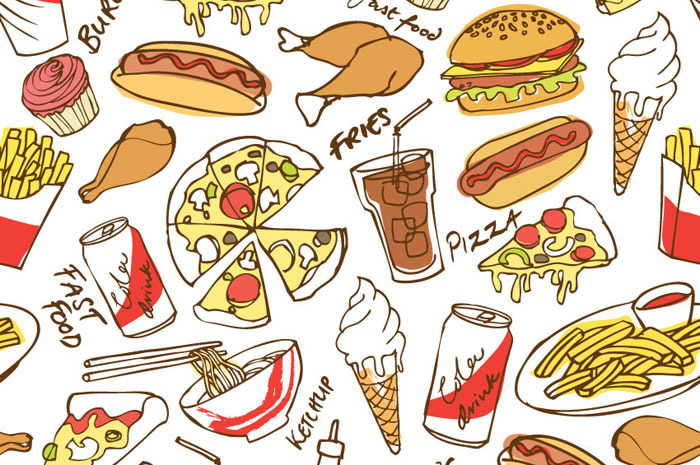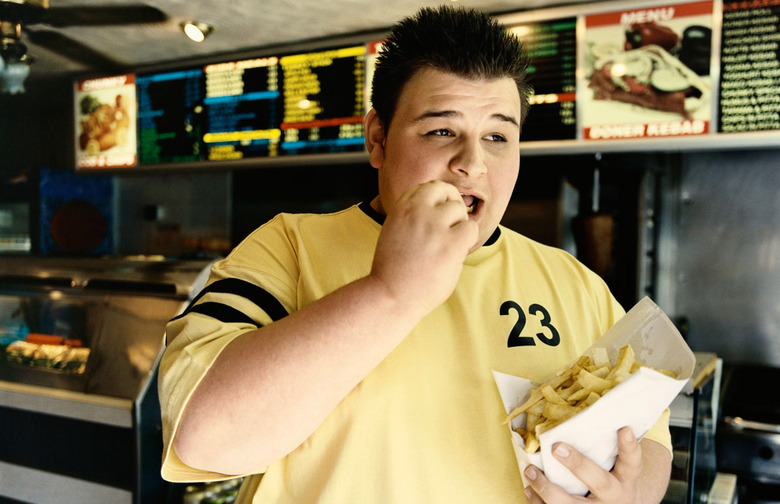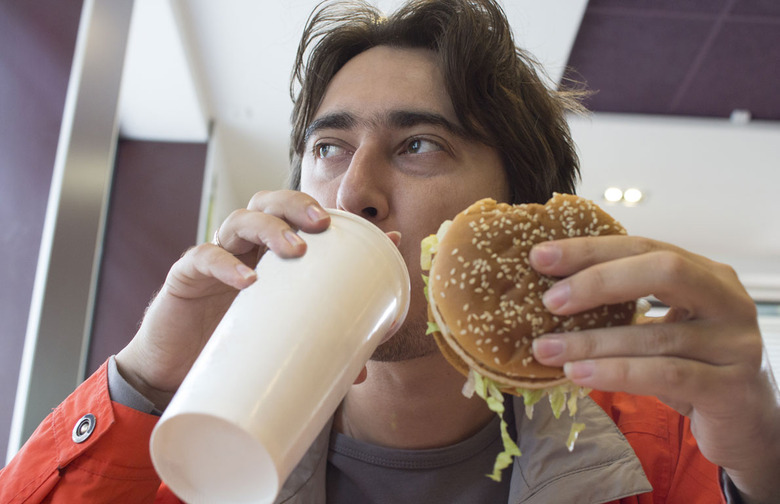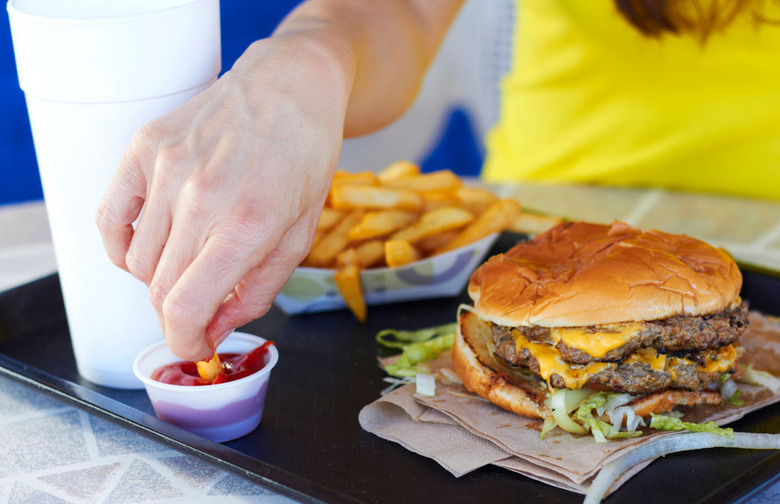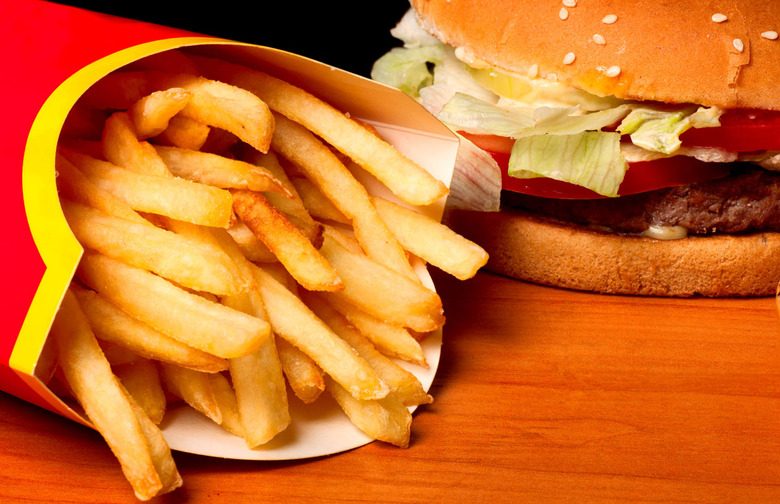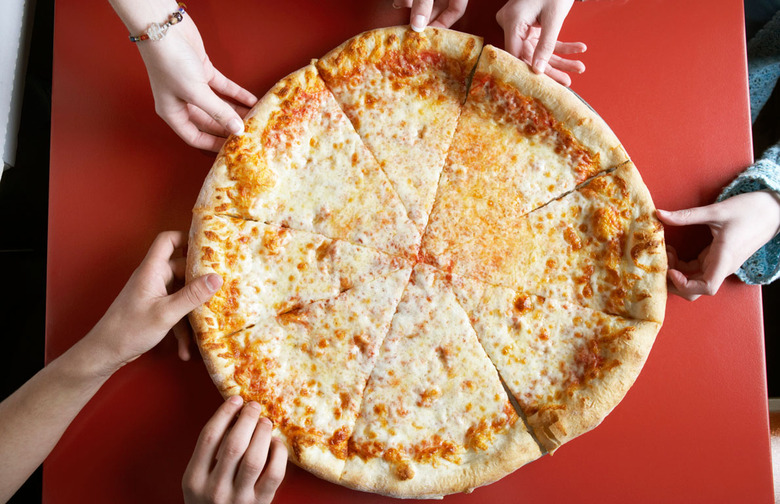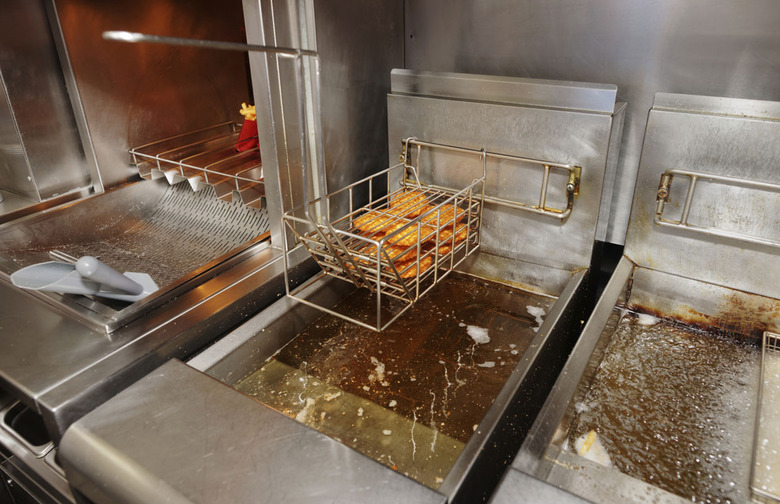8 Reasons Why Fast Food Is Making You Sick And Tired
It isn't exactly breaking news that fast food is bad for you. Even the most ardent hater of Brussels sprouts and broccoli can't argue that a bacon cheeseburger and order of large fries washed down with an extra-large, collectable plastic cup filled with high-fructose corn syrup seems like a healthy meal. Fast food has a terrible reputation. And for good reason: It's really unhealthy, and if you eat a lot of it, not only will you gain weight, you'll also end up sick and tired. But how much do we really know about why fast food is bad for you?
It’s High in Sugar
Sugar hides in nearly every fast food item, even the savory ones. Eating too much sugar can lead to diabetes and obesity, and, on top of that, the type of sugar that appears most often in fast food and other processed food is fructose, which is metabolized by the liver directly into fat — just like alcohol.
It’s High in Ingredients That Aren’t Real Food
There are dozens of chemicals in every fast food item, from texturants to fillers, preservatives to artificial flavors and colors. While they've all been approved by the FDA for use in food, none of them are food, so they don't add any nutritional benefits. They're just empty space, bringing nothing to the party except, possibly according to some reports, cancer.
It’s Engineered to Be Easy to Overeat
The trifecta of sugar, salt, and fat hits the pleasure centers in our brains, and each bite becomes a "reward," making it nearly impossible to stop eating once we get going. This is called the "food reward hypothesis of obesity," and fast food companies have these formulas down to a science.
It’s High in Simple Carbohydrates
The simple carbs in the buns, fried chicken breading, and basically anything else that's bready at a fast food joint quickly break down into sugar, leading to a quick spike in blood sugar and insulin levels. Whole grains, on the other hand, digest slower and provide sustained energy. When you eat simple carbohydrates, you'll get a quick energy boost, but within a couple hours you'll crash — and find yourself craving carbs again.
It’s Low in Fiber and Other Nutrients
When food is processed, many nutrients are lost. White flour may be "enriched" before being used to make buns and other bready fast food items in an effort to replace some of the vitamins and minerals, but they still don't provide much real nutrition. Fast food is also very low in fiber, which has many heart-healthy benefits and aids in digestion.
The ‘Nocebo Effect’ May Be Real
As opposed to the placebo effect, which is when we believe that something is making us feel better even though it's actually not, the nocebo effect involves feeling miserable because we believe we've eaten something harmful. Even though fast food is terrible for us and does in fact make us feel more tired and lethargic, believing that eating fast food causes full-on illness can also be a symptom of the nocebo effect.
Its High Sodium Levels Cause Bloating
High sodium levels (of which fast food has plenty) pull water from your cells, which causes your body to hold onto extra fluid to compensate, leading to bloating. High sodium levels also increase blood pressure, which is linked to heart disease.
Its Saturated Fat Causes Indigestion
If you eat fast food and don't allow your body the time to fully digest it before going to sleep, don't be surprised if you wake up in the morning with indigestion. High-fat foods take longer to digest than foods lower in fat, and saturated fat leads to buildups in stomach acid, which can make its way into your esophagus.
